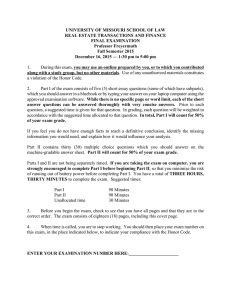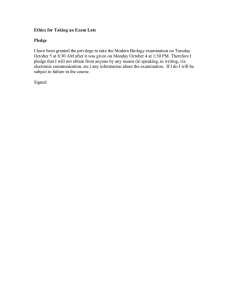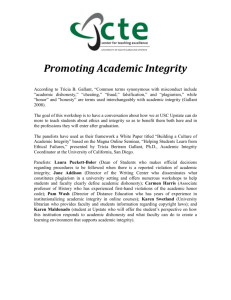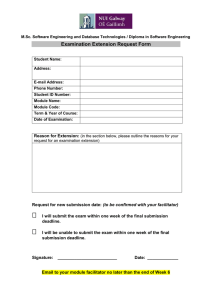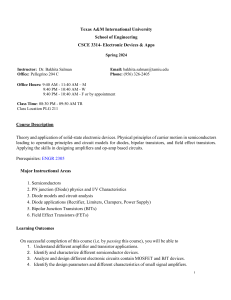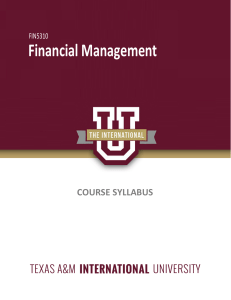Honor Code - Tamiu.edu
advertisement
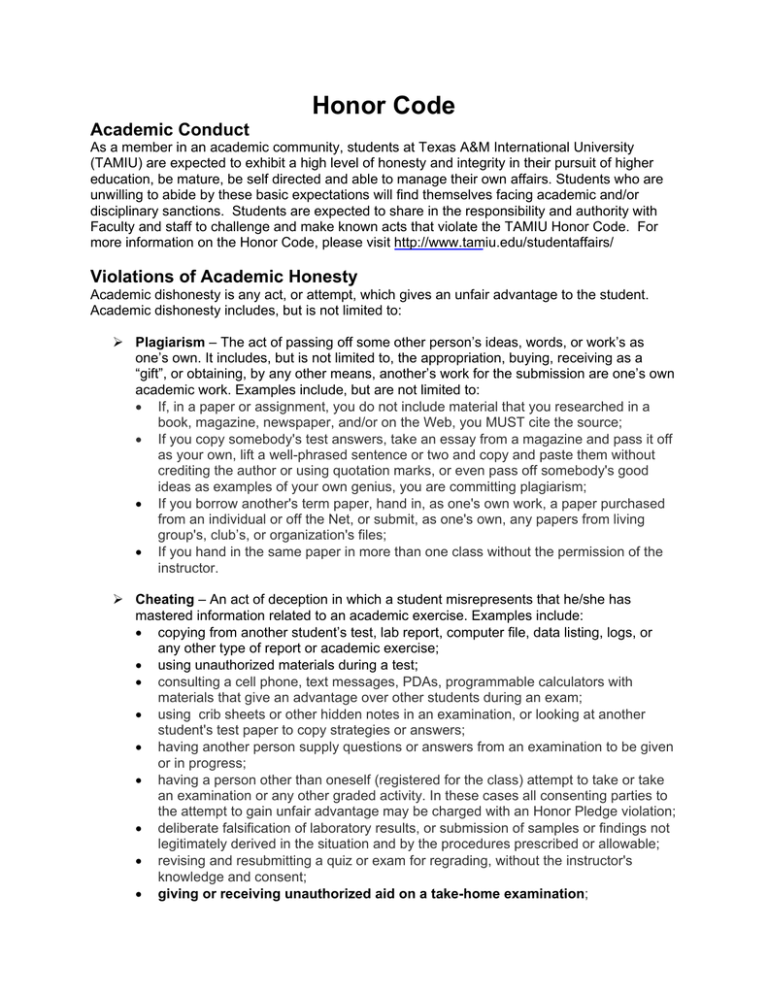
Honor Code Academic Conduct As a member in an academic community, students at Texas A&M International University (TAMIU) are expected to exhibit a high level of honesty and integrity in their pursuit of higher education, be mature, be self directed and able to manage their own affairs. Students who are unwilling to abide by these basic expectations will find themselves facing academic and/or disciplinary sanctions. Students are expected to share in the responsibility and authority with Faculty and staff to challenge and make known acts that violate the TAMIU Honor Code. For more information on the Honor Code, please visit http://www.tamiu.edu/studentaffairs/ Violations of Academic Honesty Academic dishonesty is any act, or attempt, which gives an unfair advantage to the student. Academic dishonesty includes, but is not limited to: ¾ Plagiarism – The act of passing off some other person’s ideas, words, or work’s as one’s own. It includes, but is not limited to, the appropriation, buying, receiving as a “gift”, or obtaining, by any other means, another’s work for the submission are one’s own academic work. Examples include, but are not limited to: • If, in a paper or assignment, you do not include material that you researched in a book, magazine, newspaper, and/or on the Web, you MUST cite the source; • If you copy somebody's test answers, take an essay from a magazine and pass it off as your own, lift a well-phrased sentence or two and copy and paste them without crediting the author or using quotation marks, or even pass off somebody's good ideas as examples of your own genius, you are committing plagiarism; • If you borrow another's term paper, hand in, as one's own work, a paper purchased from an individual or off the Net, or submit, as one's own, any papers from living group's, club’s, or organization's files; • If you hand in the same paper in more than one class without the permission of the instructor. ¾ Cheating – An act of deception in which a student misrepresents that he/she has mastered information related to an academic exercise. Examples include: • copying from another student’s test, lab report, computer file, data listing, logs, or any other type of report or academic exercise; • using unauthorized materials during a test; • consulting a cell phone, text messages, PDAs, programmable calculators with materials that give an advantage over other students during an exam; • using crib sheets or other hidden notes in an examination, or looking at another student's test paper to copy strategies or answers; • having another person supply questions or answers from an examination to be given or in progress; • having a person other than oneself (registered for the class) attempt to take or take an examination or any other graded activity. In these cases all consenting parties to the attempt to gain unfair advantage may be charged with an Honor Pledge violation; • deliberate falsification of laboratory results, or submission of samples or findings not legitimately derived in the situation and by the procedures prescribed or allowable; • revising and resubmitting a quiz or exam for regrading, without the instructor's knowledge and consent; • giving or receiving unauthorized aid on a take-home examination; • • • • • • facilitating academic dishonesty: intentionally or knowingly helping or attempting to help another to violate the Honor Pledge; signing in another student's name on attendance sheets, rosters, Scantrons; submission in a paper, thesis, lab report, or other academic exercise of falsified, invented, or fictitious data or evidence, or deliberate or knowing concealment or distortion of the true nature, origin, or function of such data or evidence; procurement and/or alteration without permission from appropriate authority of examinations, papers, lab reports, or other academic exercises, whether discarded or actually used, and either before or after such materials have been handed in to the appropriate recipient; collaborating with others on projects where such collaboration is expressly forbidden, or where the syllabus states the default as being one's own work; and using, buying, selling, stealing, transporting, soliciting, copying or possessing, the contents of an unadministered test, a required assignment or a past test which has, by the professor, not been allowed to be kept by their students.
